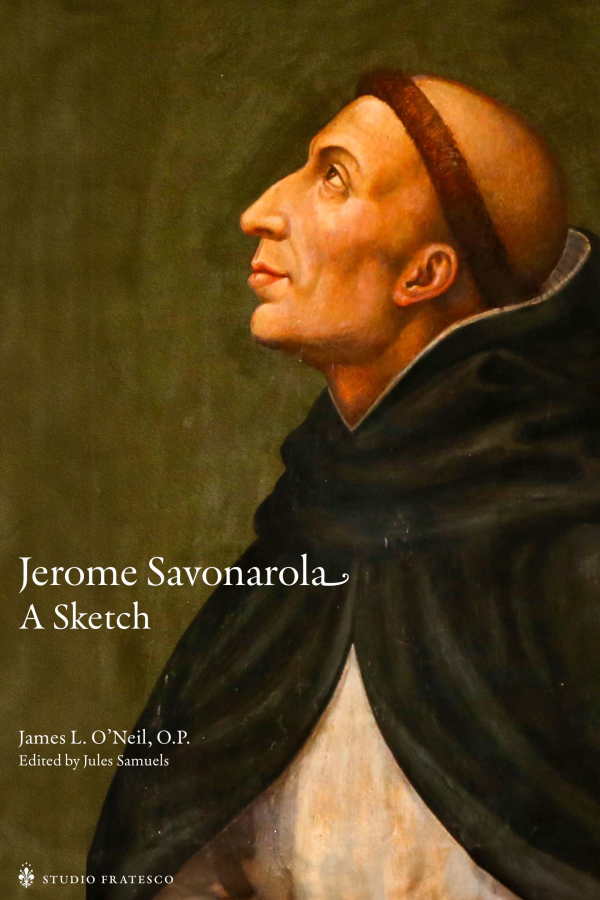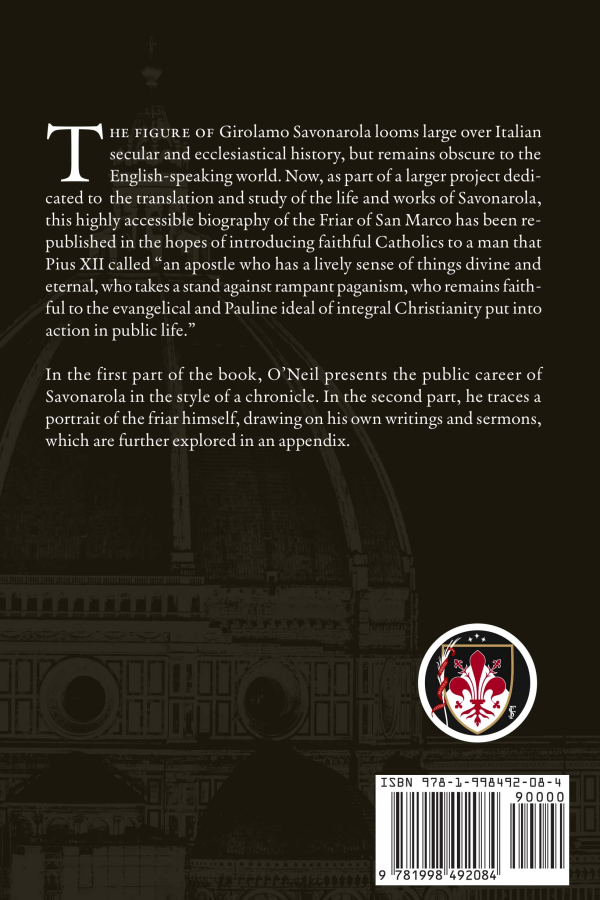Jerome Savonarola: A Sketch
- Product Code: jsas
- Publication date: December 2024
- Pages: 228
- Size: 5.5 x 8.5
$22.95
-
Published in cooperation with the Savonarola Society and Studio Fratesco.
The figure of Girolamo Savonarola looms large over Italian secular and ecclesiastical history, but remains obscure to the English-speaking world. Now, as part of a larger project dedicated to the translation and study of the life and works of Savonarola, this highly accessible biography of the Friar of San Marco has been republished in the hopes of introducing faithful Catholics to a man that Pius XII called “an apostle who has a lively sense of things divine and eternal, who takes a stand against rampant paganism, who remains faithful to the evangelical and Pauline ideal of integral Christianity put into action in public life.” In the first part of the book, O’Neil presents the public career of Savonarola in the style of a chronicle. In the second part, he traces a portrait of the friar himself, drawing on his own writings and sermons, which are further explored in an appendix.
ABOUT THE SAVONAROLA PROJECT
Through the centuries, much has been written in defense of Fra Girolamo, and the consensus among Catholics—principally in Italy—holds him as one of the Church’s greatest sons, a preacher of rare efficacy (as Fr. Thomas Crean, O.P. put it), and a sure guide for those who seek to advance in the spiritual life. One of the greatest triumphs in this effort was the compilation and publication of the National Edition of Savonarola’s opera omnia, carried out in the 20th century by eminent Italians, and directed by Blessed Giorgio La Pira, the “Holy Mayor of Florence.” We believe, therefore, in continuation of this pious endeavor, that by translating his works into English, the lingua franca of our time, and re-publishing important scholarly studies, his potent and efficacious voice will reach unto the ends of the earth. In fact, Savonarola himself often alluded to such a calling. The task before us is daunting, but as Professor Paolo Luotto said with so much humility and wisdom, “There is no need for haste; the years to come are ours as well. The Piagnoni will never cease to exist, and just as the doctrine of the Friar of San Marco will endure forever, so too will his followers. What is not accomplished by us today will be done by our successors tomorrow. The cause of Savonarola will triumph in one way or another. This is our faith.”
Reviews (0)
Be the first to write a review for this product.




